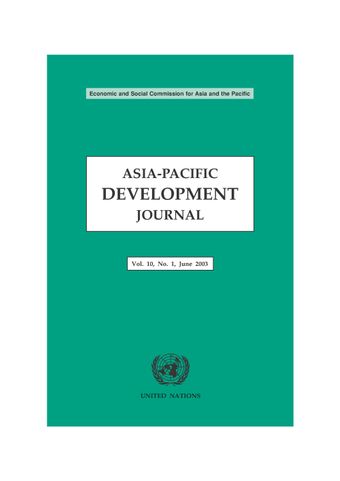-
Malaysia’s response to the financial crisis: Reconsidering the viability of unorthodox policy
- Source: Asia-Pacific Development Journal, Volume 10, Issue 1, Oct 2006, p. 1 - 23
-
- 06 Oct 2006
- Previous Article
- Table of Contents
- Next Article
Abstract
Malaysia enjoyed high rates of growth in the early 1990s. The economic crisis that struck Malaysia in 1997 caught the country by surprise. Amidst the economic turmoil that shook the other South-East Asian countries, Malaysia ventured to adopt an unorthodox policy response to the crisis, choosing to implement a policy package consisting of a pegged exchange rate and capital controls. This paper argues that the package, which went against orthodox policy prescriptions, did offer a limited measure of certainty to export-oriented businesses in so far as they were protected against currency fluctuations. This paper also argues that the unorthodox policy had its costs. These costs include the decrease in FDI, lowered competitiveness, possibly weaker financial institutions and a lack of transparency in decision-making.





